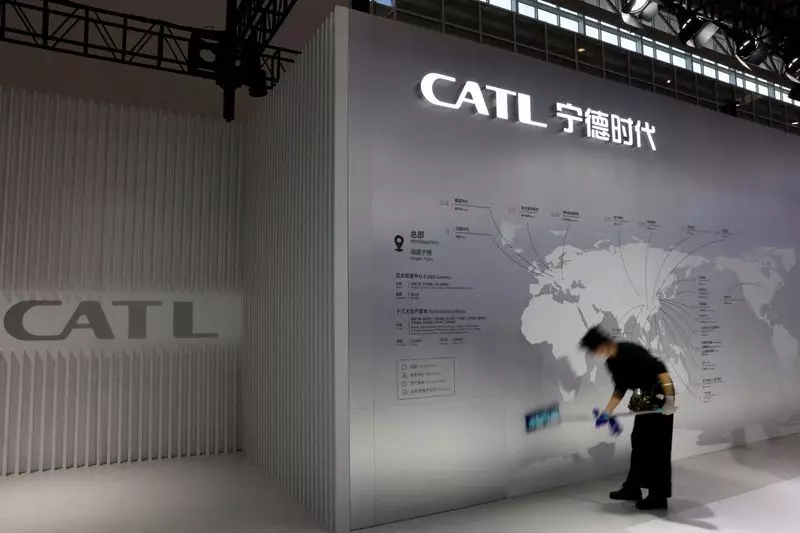In a significant escalation of tensions between the United States and China, the U.S. Defense Department has updated its list of companies it associates with the Chinese military, formally known as the “Section 1260H list.” Among the 134 companies added are notable tech giants like Tencent Holdings and CATL. This move underscores the growing scrutiny that the U.S. government places on Chinese enterprises amid fears that they might contribute to China’s military modernization efforts. The new designations could have profound implications not only for the companies involved but also for American businesses engaging with them.
The companies featured in this year’s update range from gaming and social media leaders to manufacturers of critical components for the technology sector. For example, Tencent, which operates the widely-used WeChat messaging app, saw its stock price plummet by over 8% in after-hours trading following the announcement. The company’s swift denial of any military affiliation highlights the potential collateral damage of such listings. Executives from the involved firms, including CATL and Quectel, have asserted that their operations are purely commercial and do not engage with the military.
This decision emerges against a backdrop of deteriorating U.S.-China relations, characterized by escalating trade frictions and growing national security concerns. The U.S. government has been on high alert regarding the activities of Chinese companies, arguing that they could be conduits for military technology that might undermine national security. Craig Singleton, a China expert at the Foundation for Defense of Democracies, articulated a critical view, suggesting that American firms are “reckless” in their partnership dealings with Chinese enterprises.
The implications of this broadened blacklist are multi-faceted. Since being included on the list does not automatically impose sanctions, companies like Tencent and CATL may not face immediate operational disruptions, but they must contend with reputational damage. Moreover, the listing serves as a cautionary signal to American investors and collaborators about the associated risks of engaging with businesses linked to China’s military.
The response from the affected firms has been swift. Tencent has labeled the Pentagon’s decision a “clear mistake,” asserting its commitment to non-military business practices. Similarly, CATL and Quectel have sought to disavow any military connections, preparing appeals for reconsideration. These statements represent an ongoing challenge for companies caught in the crossfire of geopolitical hostilities.
Beyond these initial reactions, the lack of comment from remaining companies, such as Autel Robotics and coding firms listed on the updated roster, leaves many questions about how they will respond to their newly tarnished reputations. The increased public scrutiny from lawmakers and analysts may generate further tension, leading to repercussions for U.S. companies partnering with these Chinese firms.
The Pentagon’s renewed attention to these companies is not solely a unilateral decision; it reflects mounting pressure from U.S. lawmakers who have increasingly pushed for concrete actions to address what they perceive as a national security threat. Some lawmakers have openly expressed concerns about partnerships between American automotive companies, such as Ford Motor, and Chinese battery producers like CATL. Their apprehensions stem from worries about intellectual property and the potential impact on U.S. technological leadership.
Additionally, the presence of companies involved in bio-storage and genomic sequencing, like MGI Tech and Origincell Technology, expands the focus beyond traditional military capabilities to encompass areas that could have implications for public health, personal data security, and pharmaceutical development. This breadth of concerns underscores the extensive implications arising from engagement with Chinese tech.
As the U.S. Defense Department tightens its grip on companies it perceives to threaten national security, the fallout from the newly updated Section 1260H list will likely reverberate through various economic sectors. Companies, policymakers, and investors must navigate a complex landscape marked by growing geopolitical tensions and trade frictions. Ultimately, the implications of these listings extend beyond mere reputational damage; they reflect broader concerns about the interaction between trade, technology, and national security in an increasingly interconnected yet fragmented global marketplace.

